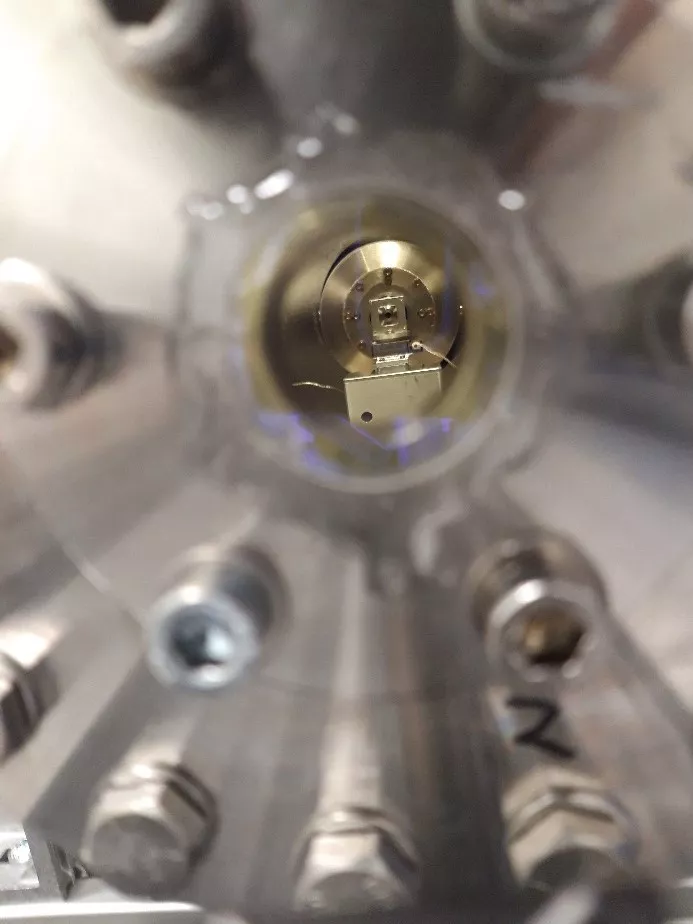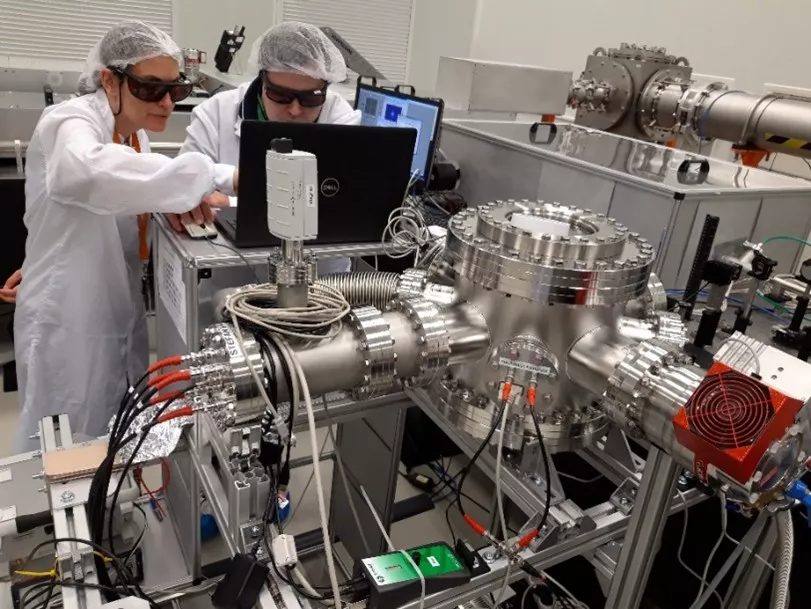Wigner RCP and ELI-ALPS researchers develop compact laser particle accelerator with potential applications in healthcare and industry
The researchers of the ELKH Wigner Research Centre for Physics (Wigner RCP) and the ELI-ALPS Laser Research Institute in Szeged have developed new nanooptical circuits, particle acceleration methods, and optical diagnostics within the framework of a just completed four-year collaboration. The project aimed to understand the ultra-fast processes of electrons moving in different material systems with the help of laser light. The experiments represent significant progress in the acceleration of charged particles and the development of nanooptical circuits. As part of the collaboration, a compact laser particle accelerator was built, uniquely capable of accelerating negatively charged oxygen and carbon ions in a vacuum chamber with a volume of only one-tenth of a cubic meter. The particle beams produced by the laser can be further utilized in healthcare and industrial applications. The developments were realized with a 281.8 million HUF grant from the Hungarian National Research, Development and Innovation Fund (NRDI Fund).
Péter Dombi, project leader and scientific advisor at Wigner RCP, stated that the light sources and research equipment at ELI-ALPS in Szeged have enabled the performance of unique experiments in the past 4 years that represent significant progress in the acceleration of charged particles and the development of nanooptical circuits. The experiments initiated by the researchers at Wigner RCP were carried out with the help of the recently built equipment at ELI-ALPS.

The vacuum chamber used for nanooptical experiments at Wigner RCP, which was utilized for experiments carried out at ELI-ALPS
Numerous important material systems exist where ultrafast processes, lasting from a fraction of a millionth of a second to a billionth of a second, are crucial. The aim of all developments in the project is to understand the processes of electrons in motion in different material systems on this incomprehensibly fast timescale. Approximately 25 researchers from the Wigner RCP and ELI-ALPS investigate and control these processes using laser light. Significant progress has been made in the project regarding negatively charged ions that can be accelerated with lasers. The compact laser particle accelerator built by the researchers is uniquely capable of accelerating negatively charged oxygen and carbon ions in a vacuum chamber that is only one-tenth of a cubic meter in size. The particle beams produced by the laser can be further utilized in healthcare and industrial applications.
The developments were implemented with a 281.8 million HUF grant from the NRDI Fund for performing user experiments at ELI-ALPS in Szeged.

The researchers of Wigner RCP and ELI-ALPS are conducting joint experiments in the Szeged laser laboratory

